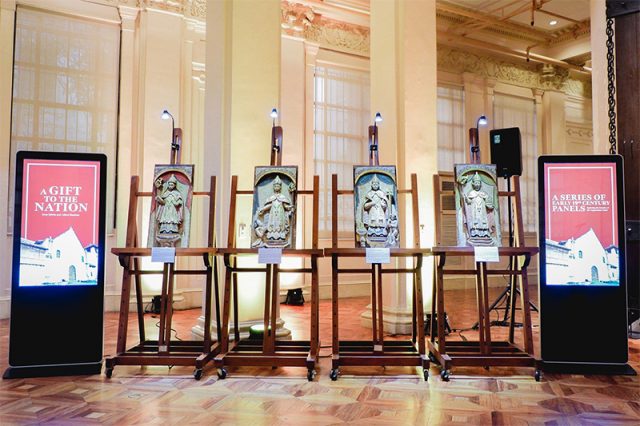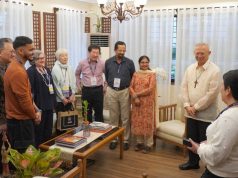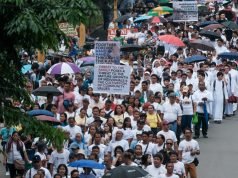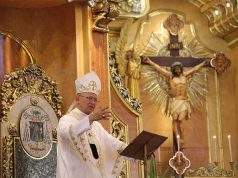
The Archdiocese of Cebu has claimed ownership of 19th-century pulpit panels removed from a church in Boljoon decades ago, now held by the National Museum of the Philippines (NMP).
Archbishop Jose Palma said the four panels were removed without the church’s permission and demanded for its ‘immediate return’ to the Archdiocesan Shrine of Patrocinio de Maria Santissima.
“The Archdiocese of Cebu hereby asserts its ownership of these panels and requests their immediate return to Boljoon at the pulpit where they were surreptitiously removed,” Palma said in a statement released Tuesday.
The panels depicting the founder of the Augustinian Order resurfaced at the NMP on Feb. 13, described as “a gift to the nation” from private collectors Edwin and Aileen Bautista.
“The panels, which feature the image of Saint Augustine of Hippo, trace its original provenance from the pulpit of the Patrocinio de Maria Santisima Parish Church in Boljoon, Cebu,” the museum said in a social media post on Feb. 14.
“The National Museum of the Philippines thanks Mr. and Mrs. Bautista for their generous contribution to our ever-growing national collection,” it said.
In another statement issued Feb. 19, the NMP claimed that the donors procured the panels through “legitimate means, highlighting their commitment to ethical acquisition”.
“The donors’ decision to acquire these artifacts and donate to the Philippines reflects their dedication to preserving cultural heritage and promoting patriotism,” it added.
But the archbishop said that the archdiocese has no record of any request requesting approval “to deconsecrate them for removal”.
He added that such approval wouldn’t have been granted, considering the panels’ sacred status as objects where Augustinian friars preached to the faithful for centuries.
“We have to assert the sacral nature of these panels,” Palma said. “Their illegal removal constitutes a sacrilege.”
“They should never have been treated, then or now, as mere artworks for exhibition in museums, much less for private appreciation by the collectors who purchased them,” he said.









